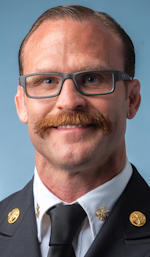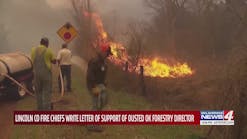Leadership Lessons: Working in an Ever-Changing Generational Environment
I often hear leaders complaining about Millennials. They call them lazy, sensitive, arrogant, ignorant and a host of other names I’d prefer not to use. But before we continue to address the issue of Millennials, I’d like you to ask yourself a couple of questions:
· What generation are you?
· Are there individuals in your generation who have been called similarly offensive names?
I can’t answer the first question for you because I don’t know your specific generation. However, I can answer the second—YES. We must understand that the generation before us talked negatively about our work habits and leadership skills, and so did the generation before that and the generation before that and so on. For example, my generation, Generation X, has been described as disaffected and directionless. I can assure you I am anything but directionless. The point: We are in an ever-changing generational environment that we must understand and adapt to.
Leaders wanted
According to the Governance Studies at the Brookings Institution, by the year 2025, 75 percent of the workforce will be Millennials. I don’t know about you, but if 75 percent of the people I will be working with in 2025 are Millennials, it’s probably a good idea to learn their personalities, traits, skills, strengths and weaknesses.
A true leader adapts to the needs, wants and concerns of their workforce. Unfortunately, many leaders today are not doing this. They are still set on the idea that Millennials should change their ways, not us change ours.
Ever wonder why so many Millennials are leaving organizations across this country at an alarming rate? I am talking about all types of organizations, including for-profit, nonprofit and public service. According Forbes, Millennials are indicating a willingness to leave an organization when leadership does not meet their standards. Yes, they are leaving because of a host of other reasons as well, but we can’t deny the fact that many want better leadership. That’s on us to fix—now.
My crew
Let me relate this to my crew. I have two excellent young firefighters who make my job extremely easy. Twenty-five-year-old Jay Wright, who is a Marine who did two tours in Afghanistan, and 25-year-old Citadel Graduate and Collegiate Wrestler Vinny Bellaran. These two could not be more opposite in personalities. Jay is a Marine so he is very serious about his work and completes all his tasks with attention to detail. He is an athlete as well, so he has a competitive nature when it comes to his work, which I love. Vinny has a dynamic personality that always makes me laugh, but when it’s time to work, he is all business and extremely quick in anything I ask him to do while also focusing on attention to detail. He is an incredible athlete as well, so we definitely have the best basketball team. They are at work before I arrive and accomplish all the morning duties so all I have to do is focus on the schedule and responses.
When new drivers are detailed to our station, they are the first ones in the stall explaining the intricacies of our rig and any important anomalies we have with it. Also, anytime we have a ride-along from recruit school, Jay and Vinny work with them diligently to highlight our operations and explain our equipment. I do not have to ask them to do this. They were groomed in recruit school by our great recruit coordinator, Engineer Stephen Webb. When they were assigned to me, I laid out my expectations the first day and continue to do so daily. These guys make my job easy. They are always asking questions and looking for new ways to perform more effectively. When we drill, we try different methods they have seen somewhere else, or even developed, to identify if we can find a better way. I love this because I can see and hear the excitement and empowerment in their body language and voices.
Firefighters want to be empowered to make progress. If we as leaders always think we are right and don’t want to listen to ideas from the younger generation, they will not be excited to work with us. Yes, I am the officer, but if the two firefighters stretching the hoselines and doing the physical labor find a better and more efficient way to do something, then they should be allowed to try it, practice it, perfect it, and then utilize it in real life. Again, I’m not the one pulling the hoselines. They are. I’m doing my size-up and 360 to get the scene set up. Now of course, if they want to try something way out of left field that makes no sense, then that’s when I must step in and be the officer. However, if you’ve trained your firefighters to be thinking firefighters and not robots, then they usually won’t go too far on the opposite side of efficiency, in my experience.
Looking ahead
As I transition from captain on an engine to battalion chief in the training division, it’s both exciting but sad as well. I’ll never ride a fire truck again as an officer. That hurts because that’s why I joined the fire service 14 years ago. However, I must continue to stay in tune with the generational environment that I will be working with. I can’t forget about the job that’s being done in the street while I’m going home every night to my family. I must stay in tune with what the crews need to be successful. If I lose touch with what goes on in the firehouses, then I’m not doing right by the crews or the department. I will stay in tune by asking for feedback from the Millennials as well as all the other generations—the Baby Boomers, Generation X, Generation Y and soon enough, Generation Z. That’s a lot of personalities and work differences to consider. The only way to understand all of them is to communicate with them, watch them, ask them questions, and focus on their needs, not YOURS.
I was very blessed to have a crew like Vinny and Jay, and I hope they take some of the techniques I showed them and make use of them in the future. I also hope they feel that I allowed them to grow every shift and that I empowered them to make a difference. I can say from firsthand experience that the Millennials I’ve worked with in emergency situations—and around the station—have been great. Thank you, Vinny and Jay, for making my time as your officer a pleasure and a learning experience. You both have taught me a great deal. Your futures are very bright.
References
Donston-Miller, D. “Workforce 2020: What You Need to Know Now.” Forbes Magazine. 2016.
Fries, K. “7 Ways Millennials Are Changing Traditional Leadership.” Forbes Magazine. 2018.

Dr. David Griffin
Dr. David Griffin is the assistant chief of administration in Charleston, SC. He was the operator of the first-due engine on June 18, 2007, when nine of his fellow firefighters perished. Griffin has come through the ranks in operations in every uniformed position, from firefighter to battalion chief and shift commander to his current position, during his 19-year career in Charleston. He has a bachelor's degree in education from The Citadel, a master's degree in executive fire service leadership, and a doctorate of education in organizational leadership and development. Griffin is the author of "In Honor of The Charleston 9: A Study of Change Following Tragedy," among three other books. He is an international speaker and instructor, a certified Chief Fire Officer and Chief Training Officer with The Center for Public Safety Excellence, an IFSAC/Pro Board-certified Fire Officer IV and a graduate of the Executive Fire Officer Program from the National Fire Academy. He is a graduate of Harvard University's Kennedy School of Executive Education program: Senior Executives in State and Local Government and of the Psychology of Leadership program at Cornell University's SC Johnson College of Business. Griffin is the owner of On A Mission, LLC, at drdavidgriffin.com.






